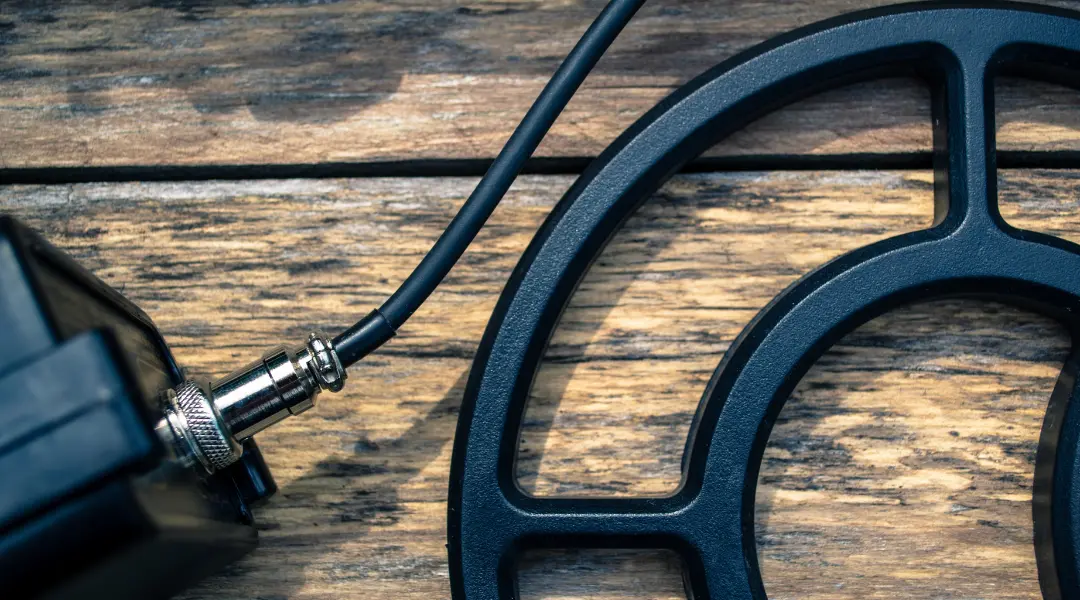In treasure hunting and prospecting, few pursuits are as captivating and rewarding as the search for gold. With the right tool, you can transform your dreams of discovering buried treasure into a reality. This comprehensive guide will delve into the world of gold detectors, exploring their types, features and helping you answer the age-old question: “Which detector is best for gold?”
Gold Detector Overview
Gold detectors are specialized devices that detect and locate gold nuggets or underground deposits. Unlike conventional metal detectors that respond to various metals, gold detectors are optimized to pick up gold’s unique electromagnetic properties, allowing them to differentiate between gold and other metals.
Key Features to Consider
When choosing a gold detector, several features should be taken into consideration. Sensitivity and depth range determines how deep the sensor can detect gold, while the operating frequency impacts its ability to see different sizes of gold particles. Coil types and sizes influence coverage and target separation, while ground balance helps handle mineralization challenges.
Types of Gold Detectors
There are three primary types of gold detectors: VLF (Very Low Frequency) detectors, PI (Pulse Induction) detectors, and Multi-Frequency detectors. VLF detectors are versatile and suitable for various terrains, while PI detectors excel in highly mineralized areas. Multi-Frequency detectors combine the advantages of both types to provide a balanced solution.
Choosing the Best Gold Detector
Selecting the ideal gold detector depends on your experience level, budget, and intended use. Entry-level detectors are great for beginners, while professional sensors offer advanced features for seasoned treasure hunters. Some renowned gold detector brands include Minelab, Garrett, Fisher, XP, and Nokta Makro.
Top Gold Detectors in the Market
- Minelab GPZ 7000: It is known for its exceptional depth and sensitivity and is ideal for serious prospectors.
- Garrett AT Gold: A waterproof detector for gold hunting in wet environments.
- Fisher Gold Bug Pro: Renowned for its versatility and sensitivity to small gold nuggets.
- XP Deus: A lightweight and wireless option with high-performance capabilities.
- Nokta Makro AU Gold Finder: Explicitly designed for gold prospecting with advanced features.
Tips for Successful Gold Detecting
Researching potential gold-rich locations, understanding your detector’s settings, and adopting effective techniques are crucial for success. Prospect in areas known for gold deposits, calibrate your machine for the terrain and employ methods like grid searching to cover ground systematically.
Maintenance and Care
Properly maintaining your gold detector ensures optimal performance. Regularly clean your device to prevent dust and dirt accumulation, maintain battery health, and stay updated with software upgrades provided by manufacturers to enhance your detector’s functionality.
FAQs
What is ground balance, and why is it essential for gold detectors?
Ground balance is a crucial feature in gold detectors that helps mitigate the effects of mineralization in the soil. Mineralization can interfere with the detector’s ability to accurately detect gold by creating false signals. Ground balance adjusts the detector’s sensitivity to the mineral content of the soil, allowing it to distinguish between mineralization and potential gold targets.
Why does operating frequency matter in gold detectors?
The operating frequency of a gold detector determines its ability to detect different sizes of gold particles. Higher frequencies are more sensitive to smaller gold nuggets, making them suitable for prospecting fine gold in highly mineralized soils. On the other hand, lower frequencies are better at detecting larger gold nuggets at greater depths. Choosing the right operating frequency depends on your target and the type of terrain you’re exploring.
How does discrimination work in gold detectors, and when should I use it?
Discrimination is a feature that allows gold detectors to ignore certain types of metal targets based on their conductivity and other properties. While discrimination can help filter out unwanted signals like nails and bottle caps, it’s essential to use it judiciously in gold prospecting. Some gold nuggets may have conductive properties similar to those of other metals, so aggressively using discrimination might result in missed gold targets.
What is target ID, and how does it help identify gold or other metals?
Target ID is a feature that provides a numerical or visual indication of the type of metal detected based on its conductivity. Gold detectors with target ID can help you differentiate between different types of metals, including gold, iron, copper, and more. This feature aids in making informed decisions about whether a detected signal is likely to be valuable or not.
How can I optimize my gold detector’s depth and sensitivity settings?
The right balance between depth and sensitivity settings is critical for successful gold detection. Increasing sensitivity can help you detect smaller gold nuggets but might also lead to false signals in highly mineralized areas. Adjusting depth settings influences the detector’s ability to penetrate the ground to locate gold. Experiment with these settings in different terrains to find the optimal configuration for your specific gold-hunting goals.
Conclusion
Embarking to find gold with a suitable detector can be an exciting and fulfilling adventure. By understanding the various types of gold detectors, their features, and the considerations for choosing the best one for your needs, you can equip yourself with the knowledge required to transform your gold prospecting dreams into golden realities. So, which detector is best for gold? The answer lies in your unique preferences, requirements, and the terrain you intend to conquer.

